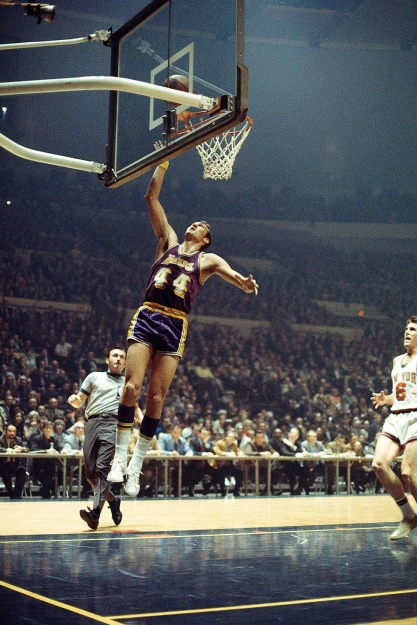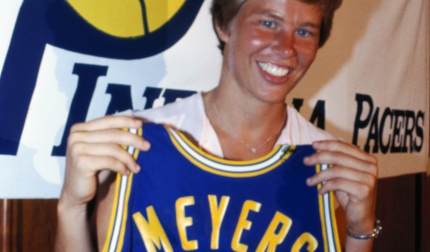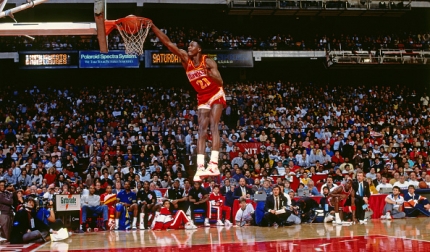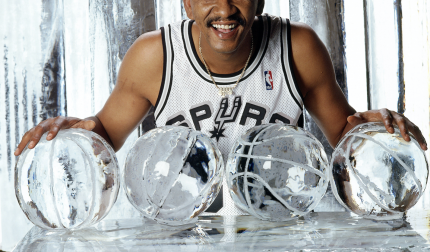Your new book West by West, My Charmed, Tormented Life is an extremely candid memoir, maybe more introspective and personal than most. Was there a reason that you felt now was the time to tell your story?
It was time to tell the story about a pretty crazy life that I’ve led and how fortunate I’ve been to be halfway decent at something that I loved to do. I was able to fulfill my childhood dreams to be someone special, There are a lot of people out there who have grown up under difficult circumstances and hidden it all of these years, but didn’t have the platform to talk about it. Regardless of how you grow up, you can’t allow your goals and your competitive drive to be tempered by the less than desirable things in your life. There are an enormous amount of athletes that have seen tough things in their life; people from all walks of life have lived a childhood like mine. These things needed to be said. I needed to talk about my frailties as a person, my struggles with myself, never getting over the desire to win at a higher level, playing on great teams, and having a great association with my teammates and a time when basketball was not in vogue. It’s a deep personal look at how fortunate I am.
Did you find the process of writing the book difficult, particularly when it comes to recalling painful memories of your life?
Yes I did. Sometimes we guard ourselves so much that we don’t become real; in many ways I had become the figment of all the nice things said about me. People should know that I was a product of not that great an environment to grow up in. I was able to change my life, to live differently. I learned a lot of lessons along the way, learned to cope with a lot of things—the disappointment of giving so much to fall short. I’ve always said there are more stories in losing locker room than a winning one—the struggles, the battles, incredible relationships with my teammates, and in time, we won a World Championship. It’s been like a fairy tale, but like some fairy tale, there are some things you would rather forget. There were a few times that I wanted to stop writing the book. The things I talked about were so personal, and in many ways so debilitating for me when I was younger, that I did want to stop. The book was not the easiest thing to do, nor was it popular thing to do with my family and a lot of people that knew me. It was one of things I’m convinced has probably been therapeutic for me.
Did the people closest to you know these darker stories?
Oh no! Even my family members we shocked my battle with depression, the major differences with my father; I lost an older brother who died in the military. These were a lot of things that had to do with my success, because it got to a point where “no” was no longer acceptable. People say, “Can’t do this. Can’t do that.” You have to set your mind to something. With determination, you can achieve a lot of things. A lot of people have failed in the world. I’ve failed a lot. I’ve always wanted to win more than anything else.
You speak candidly about feeling tormented by your perfectionism, that the drive to do things perfectly brought you great sadness. Were you aware of this as it was happening, or did you gain a greater perspective of it later in life?
I was well aware of it. It made me angry. It wasn’t only me. Everyone on our Laker team was trying to win a championship. We came close on three occasions, and we weren’t able to close the deal. When we finally won in 1972, it almost didn’t feel right. It took a while to sink in. When I look back, it was frankly a little more than I knew how to deal with. I wanted more; as an executive with the Lakers, I won more, but those championships pale in comparison to playing—the bond of having guys sitting beside you, the sorrow of losing a guy to retirement, trade or injury. The players then were so much closer.
Why were you so much closer than today’s players?
We started out in front of no crowds. The schedule was awful. The living conditions were awful. The medical care was as good as you can’t get, but it was nowhere near what it is today. It was a growing league that hadn’t caught on. Today’s players laugh about the years gone by and call them the “Covered Wagon Era.” Sometimes you wish they could have played then. Today’s players are incredibly spoiled. I don’t mean that in a bad way. But they’re catered to in every way now. Some of them begin their careers as wealthy young men. But they’ll never be as close as we were. They may have a guy or two that they hang out with, but for us, no one’s family had a penny. You would always find us in a room playing cards together, going to movies or dinner together. It was a different time.
In the early Sixties, was it harder for white and black players to bond, given the social times?
I didn’t go to school with black kids until I went to West Virginia. I learned so much more from them when I got to college. I was a really shy kid and they drew me out. It may not be a coincidence, but a lot of those guys probably grew up in even tougher surroundings as a kid than I did. There are so many people from that era that I admire as incredible players and people.
Was going to play for Los Angeles as a rookie a culture shock for you?
Anywhere I went was culture shock! I grew up in a town of 500. In college, I moved to a town of 22,000 with 10,500 students. I was so backwards and shy, it took a long time to assimilate not just as an athlete, but as a person. There were tremendous growing pains for me. I often think about if I had come out and played right after my freshman year, what my life would’ve been like. Four years in school helped me to learn how to live my life.
Is it true you almost became a Celtic? That Red Auerbach tried to trade Bill Sharman for you before you became a Laker?
I heard that they were going to make that trade. The place I really wanted to play was New York. I love the fans there, and we played there in college every year. I guess in the end, the best thing that ever happened to me was to go to Los Angeles and one of the most gloried franchises in sports history.
Before the 1964 All-Star Game, you and several players banded together and threatened not to play unless the owners recognized the Players Association. How did that come about?
The Players Association now has become so powerful, and I can be critical of it if I want. There are so many more rights than there were before. It may not have happened if a group of guys weren’t courageous enough to face the owners. Lakers owner Bob Short came into the locker room and said, “If you don’t play tonight, you’ll never play another game again.” And I said, “Gulp. Well, I guess I’ll never play another game again.” It was the first All-Star game ever shown on national television, it would have been embarrassing for everyone if we didn’t play. It took leadership and determination and guys standing in unison to say that things needed to change.
You’re a member of the NBRPA now. How important is a union for retired players?
It’s very important. Some players haven’t been as successful in the other parts of their life. It’s great that the union is there to help them get better benefits and better opportunities, and also to make sure that guys are still remembered for their achievements in basketball.
You retired as an active player at 36, but still at the top of your game. It seemed like your mind was made up, but everyone around you wanted you to keep playing. Was that hard?
I would’ve been the first million-dollar player in basketball. But it wasn’t fair to the fans, or fair to me, to expect me to score 25 points a game and be the best defensive player at my position when my body wasn’t going to make it. I had two or three devastating injuries, and I didn’t know how to treat them. I didn’t want to cheat people, even though the money from that contract was more than I made my whole career. It saddens me to see guys hanging around when it’s beyond their time, because they enjoy the limelight and they’re making a lot of money. Somewhere inside, there has to be something telling you, “I can’t do this like I used to.” It’s not fair to the fans.
When you retired, not only were you still a serious threat on offense, but you had just been named to the first four All-Defensive teams in NBA history. Do you feel that’s a part of your game that’s been overlooked.
I don’t like to talk about myself this way, but when I see the steal leaders today, I say, “Oh my God!” I just had the knack for anticipation, and very long arms. It was a gift I was given. I think if they kept those steal records from the beginning of the league, that’s one record that wouldn’t have been broken.
Do you allow yourself to enjoy the championships you won as an executive, or does your drive for perfectionism haunt those memories as much as they do as a player?
No, they haunt me even more so. We were able to assemble a lot of great players. As a player, I know how devastating injuries can be to a team. I wasn’t worried about wins; I knew we would win a lot of games. But as a great player, you can be good enough to control the game during the last few minutes. It’s much harder to watch as an executive and hope that someone steps up to put you over the hump. We were fortunate to have a great coach and great players with great character.
As you look back on your entire career in basketball, is there one memory that stands out as your favorite achievement?
Wearing the Gold Medal is still by far the greatest highlight of my career. I don’t even watch Olympic men’s basketball anymore. It’s so hyped. And I mean no disrespect to the players. Now the pros play, as they do in all of the Olympic sports. Winning a Gold Medal as an amateur is still the greatest thrill you can ever experience as a player. Also, playing for one franchise for my whole career and being an executive there is a special memory. It instilled such a strong bond with me and the franchise. It was one of the saddest days of my life when I had to leave the Lakers, but it was something I had to do.
How did you come to be a consultant with the Golden State Warriors now?
I talked with the new owners a few times. They were very much like Jerry Buss. They want to win at a high level. Also working with the younger people in the front office. It’s encouraging to watch them grow and to help them. They ask me questions; hopefully I give them the right answers. Most athletes never get a chance to do this. It’s something I really enjoy. If I wasn’t doing this, I would be in a rocking chair, and I’m not really good at that.





